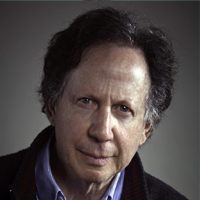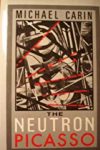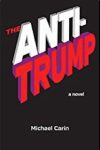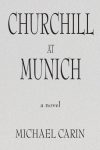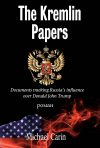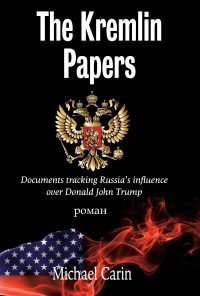
The Kremlin Papers
Documents tracking Russia’s influence
over Donald John Trump
The president of the United States is a Russian asset; he is a puppet of Vladimir Putin. The autocrat in control of Russia holds powerful kompromat over Donald Trump. The evidence is voluminous and irrefutable, and it comes from inside the Kremlin. The papers collected in this book reveal the story root and branch.
Excerpt from The Kremlin Papers
LETTER TO THE AMERICAN PEOPLE
The defector Dmitry Peskovsky fled his country with the documents that detail Russia’s influence over Donald Trump. In this opening chapter of The Kremlin Papers, Peskovsky explains the role he played in the subversion of American democracy.
Dear Citizens of America,
The documents collected in this book will provide you with a broad understanding of the Kremlin’s association with the president of the United States. I have made the documents available for a personal motive that relates to my deep distress over the dictatorial tendencies of the president of the Russian Federation, Vladimir Vladimirovich Putin. During my years of service in the Kremlin, I had hoped Putin would set Russia on a path respectful of human rights and political freedom. He has done the opposite. He is leading my dear country down a Stalinist path. My defection, several years in the planning, is now a fait accompli. You may be confident that I am cooperating with officials of America’s foreign and intelligence communities to the extent of my ability.
My name is Dmitry Sergeyevich Peskovsky. I was born in 1967 in Moscow. My father was a soldier, diplomat, and lifetime student of medieval Russian history. My mother, may her memory be blessed, devoted her career to instructing students in the mastery of the clarinet. My childhood co-existed with scholarly books and classical music. My teen years were rich, happy, productive; they endowed me with vital friendships that later permitted my entrance into the ruling circles of Russia. When I was eighteen, upon my father’s appointment as Soviet consul-general in Boston, Massachusetts, I enrolled in Brandeis University where I perfected my English while earning an honors degree in Political Science. Later, as the world knows, the principal achievement of my career involved nineteen years of service to Putin, whose trust and respect I earned and – for a too long period of time – reciprocated.
Under the tutelage and direction of Putin, I held positions of authority in immediate proximity to his all-powerful office. In addition to participating in policy deliberations, I assumed a role in shaping global communications strategy. With regard to momentous matters, I alone briefed the foreign press. Additionally, since my language fluency extended to German and French, I often acted as Putin’s interpreter during summit meetings with key foreign leaders.
As you will learn from the documents in this book, Putin ordered the formation of the Trump komitet to pursue three objectives. First, to inject chaos and uncertainty into the American electoral system. Second, to maximize the benefits to the Russian Federation of the kompromat held by the Kremlin in relation to Trump’s corruption and debauchery. And third, to help defeat the presidential ambitions of Hillary Clinton whom Putin despised and upon whom he wished to take revenge for her instigation of anti-Putin protests within Russia. I freely acknowledge that as a leading member of the komitet I took part in designing and implementing the strategies related to these objectives.
The turbulence, divisions and hatreds within America that the komitet helped stoke would have constituted sufficient ‘return on investment’ to justify our efforts. Once Trump’s improbable election was achieved however, his presidency presented a golden opportunity. If the Kremlin could direct the man in the White House to act in ways fundamentally disrespectful to American institutions, it could make a minefield of the very ground upon which the republic sat, namely its adherence to a constitution. Of equal value, if the Kremlin could manipulate its highly placed aktiv to weaken the Western alliance, then the Federation’s re-expansion westward would become more than thinkable. In short, in line with Putin’s gut instinct and the theories of Professor Yuri Malenkov which appear in this volume, we could win significant victories in the world if we could make America less like America and more like Russia.
Mission accomplished, as you Americans would say.
I am sure there will be many obstinate supporters of Trump who dismiss this claim. You would do so only out of misguided hope to salvage your self-esteem. You should ask yourselves: “Isn’t it true that as a result of Trump’s election and subsequent negation of so many American norms, we are no longer living in the same constitutional republic we inhabited before January 20, 2017?”
Your Nancy Pelosi once pointed her finger at Trump in the cabinet room of the White House and said to his face, “All your roads lead to Putin.” She was speaking plain truth. In light of Trump’s repeated shielding of Putin from any and all accusations, and his unctuous words of praise for Putin, I often wondered how you Americans could fail to see Trump’s real mandate. It was to make Russia great again.
For detail on this matter I refer you to Professor Malenkov’s exhortation to the komitet to concentrate on the disarming of America’s ‘soft power’, i.e., its hold on global authority by virtue of your country’s liberal ethics, entrenched democratic traditions, and web of alliances with other democratic states. I ask you, after the presidency of Donald Trump, who is going to trust the word of the United States? Of course good men (and great women!) will in future be elected to the White House, but foreign nations will forever know the depths to which the American electorate can sink. If you can elevate a suborned proto-fascist once, you could do it a second and third time.
I ask too, if you again raise the flag of press freedom after years of your chief executive accusing the American media of being an ‘enemy of the state’, how quickly do you expect foreign audiences to salute? And if you return to arguing for ‘human rights’ after years of non-existent statements of support for dissent in China, Turkey, Egypt, the Philippines, Myanmar, and Russia itself, who is going to stand with you?
A certain irony overhangs the whole affair of the Trump era and the president’s debt to his Russian patron. This point is not generally recognized in the West. The irony is that Putin is actually weak at home, and could have been made weaker by a determined U.S. president. (He had feared that Hillary Clinton would have been such a foe.) Putin holds power like the ayatollah in Iran holds power. He controls the police and military, and constantly purchases their loyalty. He is a classic strongman, ruling from atop stilts made of intimidation and fear rather than from a foundation of popular will.
The onetime lieutenant-colonel of the KGB strongly believes that the disappearance of the Soviet Union was one of history’s worst injustices. He is often quoted in your media as having called it the greatest geopolitical catastrophe of the twentieth century. This belief colors his every action. It has compelled him, for one small example, to order the re-writing of school textbooks to lionize Josef Stalin and all the works of the Komintern. Much more substantively it drove him to invade Georgia in support of pro-Russia terrorists in 2008, and to seize and annex the Ukrainian province of Crimea in 2014.
What Putin wants is not what the masses of Russia want. The vast majority of Russians admire the accomplishments of the West, yet their leader prefers rejection and repudiation of the Western way of life. His actions are not simply those of a KGB man’s instinctive impulses; not just revenge for the Cold War defeat. What Putin seeks is a re-Sovietization of Russia, but with one crucial difference from the extinct CCCP. He actually sees himself as a modern Christian crusader. He sees a death of the divine spirit in the West. I have heard him call Europe a secularized wasteland, and the United States a sewer of godless sin and Hollywood depravity.
Putin may not appear to be a zealot, but I have worked closely with him for nearly twenty years – I know him. He is unquestionably a monomaniac.
To further his goals he is cementing an authoritarian state with a few sham trappings of Duma democracy. He has done away with independent courts and a free press. In Putin’s view, centralization of power in one office, his office, represents the best means of governing a country like Russia. Political liberty, again in Putin’s view, is the precursor of mayhem. So an effective government must curtail liberty, erase it where possible, and if necessary liquidate liberty’s proponents when their voices reach too many ears.
An effective government also closely allies itself with controllers of the economy. The so-called oligarchs in Russia are predominantly Kremlin-connected mobsters who plundered industries that were formerly state-owned. They then sought to protect their money by buying real estate properties outside of Russia, among them luxury apartments sold by the Trump organization. Beginning in 2006 Trump’s people regularly kept Putin’s office informed as to the activities of these purchasers. This was done to please the president of Russia as Trump doggedly pursued his decades-long dream of building a Trump tower in Moscow.
Perhaps the greatest deficit of Trump’s opponents during the 2016 election was their failure to contradict Trump’s glaring fiction to the effect that the Kremlin had no influence over him. He repeated countless times in speeches and on Twitter: “Russia has never tried to use leverage over me. I HAVE NOTHING TO DO WITH RUSSIA – NO DEALS, NO LOANS, NO NOTHING.” Aside from the mirth that his puerile capital letters always elicited in the komitet, we greeted this serial lie with contentment. The debil’nyy kloun was only adding to the Kremlin’s leverage.
Putin knows that his goal of resurrecting Russian hegemony over eastern Europe is impossible so long as the first loyalty of American presidents is to the role of their country as a beacon of democracy. Accordingly Putin did everything he could to install an obedient pet in the Oval Office. Having achieved the near-miracle, he will do everything he can to keep his poodle in place. The conversation Putin held with Trump in Helsinki, the transcript of which appears in this volume, provides numerous indications to that effect.
Shortly after twelve noon on 16 July 2018 the two leaders met in the Gothic Hall of Finland’s presidential palace. The meeting lasted seventy-seven minutes. As the world knows, the president of Russia and the president of the United States shared a private conversation. No notes were taken. The sole witnesses were the two interpreters. I sat by the side of Putin and translated Trump. An interpreter from the U.S. State Department, an extremely competent (I would even say formidable) lady, Mrs. Lena Voss, sat by the side of Trump and translated Putin. At several points in the conversation, Putin felt comfortable enough with his basic but functional English to make his points without reliance on Mrs. Voss.
Inside the left breast pocket of my suitcoat was a recording device in the form of a ballpoint pen. Upon exiting the meeting, I surrendered the device to President Putin’s adjutant, a colonel in the military intelligence apparat of Russia, the GRU. To the best of my knowledge the GRU has done nothing with the tape beyond securing it with other kompromat materials regarding Trump. Known to only a small group of officials in the Kremlin, namely the members of the Trump komitet, the locked drawer in Putin’s desk containing those materials is referred to as the seyf, perhaps to be opened on some undefined Sudnyy den.
Neither the adjutant nor President Putin were aware that my right breast pocket contained a second recording device. Approximately the size of a business card, I had purchased it several months earlier from a street kiosk in Berlin. Once securely alone after the Putin/Trump meeting, I uploaded the seventy-seven minute audio file into an encrypted folder in the Cloud. I then applied a hammer to my Berlin souvenir, reducing it to small pieces, and flushed the pieces down the toilet.
Solemnly, and with due regard to the potentially momentous effects of my act, I attest to the authenticity of the various Kremlin papers (translated by myself) and transcript of the Helsinki conversation published herewith. The text of the transcript faithfully reproduces the conversation between Vladimir Putin and Donald Trump in Helsinki on 16 July 2018. I affirm as well the authenticity of my accompanying remarks within the transcript, all of which are drawn from my recollection.
I wish to address one final word to you, good people of America. Having taken part for nearly four years in the Russian Federation’s effort to devalue your democracy and undermine America’s station in the global order, I pray that my disclosure of these papers will earn me some measure of forgiveness.
– Dmitry Peskovsky
18 July 2020
Order The Kremlin Papers
“We have only begun to exploit
the susceptibility of American culture
to rancor and disunion.”
– Vladimir Putin
November 9, 2016
